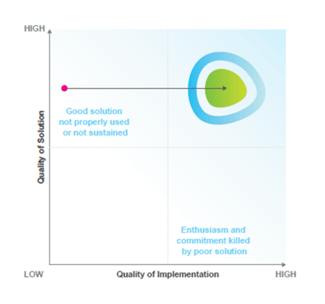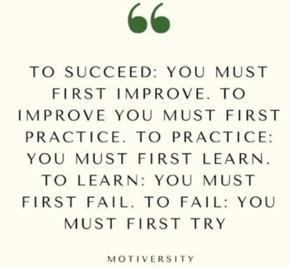
A regular catch-up with a senior People professional recently about the current state of Change Management across their organisation really set me thinking.
The conversation went along the lines of “we’re experiencing a lot of Change Management fatigue and we’re curious about how we lead sustainable change using culture as a vehicle”.
This really struck a chord with me – after all, if new strategic goals are countercultural, major change towards those goals is harder to achieve. I thought also, “Oh no! Not another definition and reframing – just because things are difficult”.
Part of the challenge here is that Change Management is it understood in a variety of ways by different practitioners and organisations. Which in turn affects and informs our focus. Perhaps the bigger part of the challenge, however, is the multi-level and prevailing nature of Change Management. What I’ve heard best described as a “commitment for the long haul” by top management. With full ownership by the workforce and continual support for and by middle management.”
This set me thinking about laying down a useful definition of Change Management to contribute to the discussion.
Our definition of Organisational Change Management
At Changefirst we define Change Management as the know-how – skills, processes, tools, and other resources - we use to plan (for) and prepare people at all levels in an organisation. So, they can play their part in delivering business change and achieving transformation goals successfully.
 And at its most essential this know-how is agile, scalable and accessible enough to keep pace with evolving ways of working and still get the job done. And more specifically to:
And at its most essential this know-how is agile, scalable and accessible enough to keep pace with evolving ways of working and still get the job done. And more specifically to:
- facilitate recognition and anticipation of people risk associated with the change by looking backward (to assess change legacy and potential impact), establishing a baseline to measure against and realistic picture of the starting point
- then, craft a shared sense of purpose with realistic scenarios and data-driven change implementation plans, that are tailored to the special needs of different parts of the business
- and finally, to regularly monitor and measure progress (plan-do-review) and quickly identify trigger points as part of a more agile, data-driven approach to forward planning
Three questions come to mind in all of this
I think there are three key things to consider on the back of this as follows:
- Do we really need another definition or just a better way to help people to prevail?
Getting skills, tools and resources to where they are most needed in the organisation in a timely and cost-effective manner. Helping people to be 'change-ready'. - Do we really need another definition or a way to design the organisation for continuous adaption?
And with an ever-evolving environment and working arrangements, can this be effectively achieved without the use of technology? - Do we really need another definition, or just to flip a big assumption about OCM?
In this article from Summer 2020, HBR points to flipping a basic assumption about how change works, to get better results. From 'follow best practices' to 'share your failures'.
This struck a number of chords with me. And also brought me right back to the ‘culture’ conversation that I started with. More successful initiatives leveraged cultural strengths to support them, so:

- How can we quickly learn from our legacy and share failures? Then estimate and extrapolate for success?
- How well do we really understand our company culture?
- How can we best leverage that data and insight to support formal Change Management efforts and get off to a faster start on change initiatives?
Are you ready for the opportunities – and uncertainties ahead?
Talk to us now about easy licensed access to practical, data-driven Change Management tools and training to add to your organisational change armoury. To enable your rapid response capabilities in what is increasingly fast changing circumstances.



Leave a comment